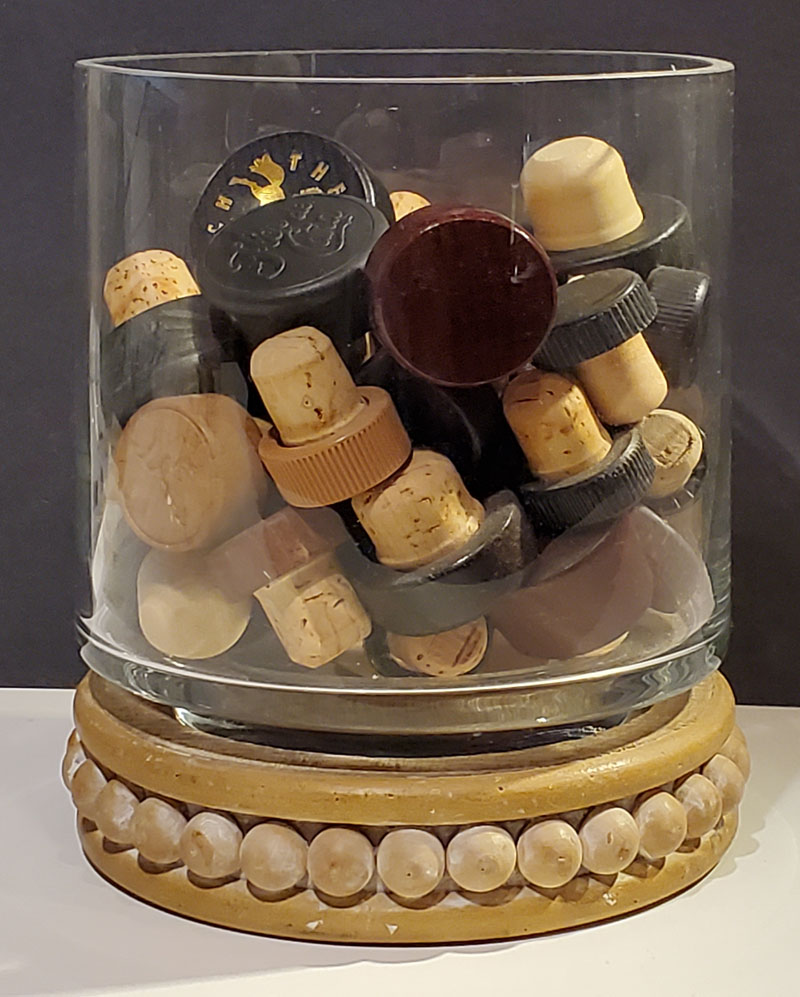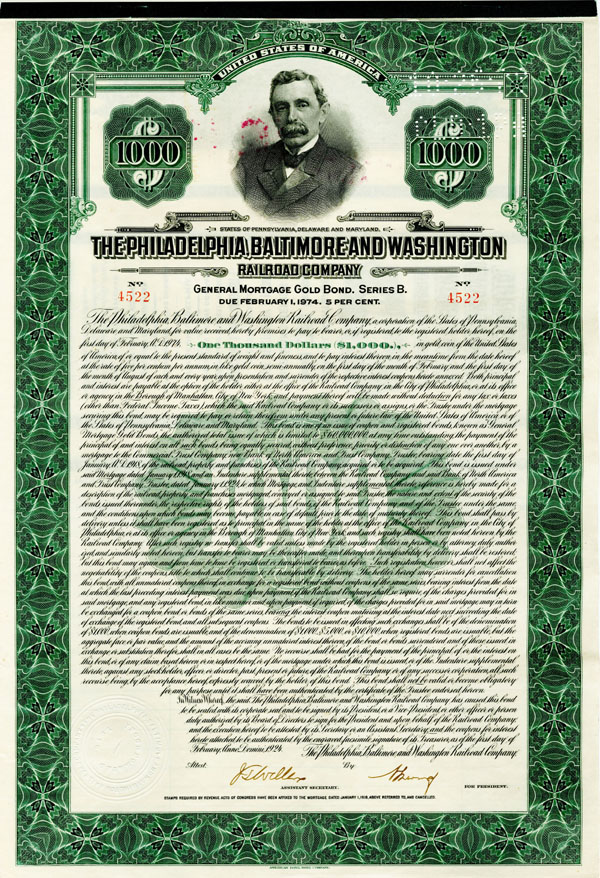Collecting
If I didn't love collecting, I would not be writing this. And if you didn't feel the same, you wouldn't be reading it. There is no shortage of alternative pursuits for either of us.
 A worthless, but fun collection of scotch and bourbon corks that graduated from our kitchen drawer to a more deserving container. I believe people will collect anything and value has little to do with the endeavor.
A worthless, but fun collection of scotch and bourbon corks that graduated from our kitchen drawer to a more deserving container. I believe people will collect anything and value has little to do with the endeavor.
If you are at this site because you like railroads and maybe railroad certificates, then you probably already have specific interests. So far, I've never met two collectors with identical interests and I fully expect yours to be different, also. So I am not going to attempt to tell you what or how to collect. Instead, I'm going to talk about several subjects relative to collecting certificates, but not specific certificates themselves.
Most people find my site because they are looking to either identify something they own or find out what it might be "worth." The links at the left side of this page take you to discussions of several aspects of collecting that don't deal in any way with either identification or pricing. They deal with the more "structural" aspects of the hobby that almost every true collector will deal with sooner or later.
Please feel free to write if there are other topics you would like me to cover that relate to the subject of collecting certificates.
Scripophily: the hobby of collecting old stocks and bonds
Whether you knew it or not, you have participated in the hobby of Scripophily if you purposely formed a collection of a few stocks and bonds.
The Scripophily (or "scripo" as some people call it in shorthand) hobby is very new compared to related hobbies of numismatics and philatelics (coins and stamps.) The scripophily hobby dates from about 1975 and 1976 when two German bankers published research catalogs on Russian and Chinese bonds.
 Engraving of George Roberts on a 1924 general mortgage bond of the Philadelphia Boston & Washington Railroad Company.
Engraving of George Roberts on a 1924 general mortgage bond of the Philadelphia Boston & Washington Railroad Company.
Soon thereafter, interest grew exponentially in the United Kingdom. Collecting of all sorts has always been a popular pastime in Britain, and of course, every hobby must be named. At least that is what The Times (of London) decided. And, of course, what better way to accomplish that than by launching a contest for its readers? The game concluded when it announced in its May 9, 1978 issue that it had chosen the name "scripophily."
Mr. Arthur Howell, Esquire of Brighton was declared the winner for coining the word from scrip (a certificate conveying the right to receive something of value) with philos (the Greek word meaning to love.) Philos has enjoyed a long history of constant use (think "Philadelphia"), but the origin of scrip is a bit more obscure. Researchers have claimed that it seems to date from Great Britain in 1672 where it was used to represent a form of subscription receipt. Personally, I'd push the definition considerably earlier, back to the Latin verb suscribo and its third and fourth declensions, subscripsi and subscriptus, but I am no Latin expert.
A "subscription receipt," whether in the 18th or 21st centuries, means a receipt given for the monetary commitment to buy something in the future. In that respect, there is a direct correlation to the act of subscribing to the purchase of stocks or bonds by making a down payment of some amount.
Whether they know the origin of the word or not, I think most people who have formed collections of stocks and bonds automatically know what the scripophily hobby is all about. Definitions can get more elaborate including one at Investopedia and another at The Scripophily Guide by Howard Shakespeare from the International Bond & Share Society website.
I shorten the definition to:
Scripophily:
the hobby of collecting old securities and closely-related documents.